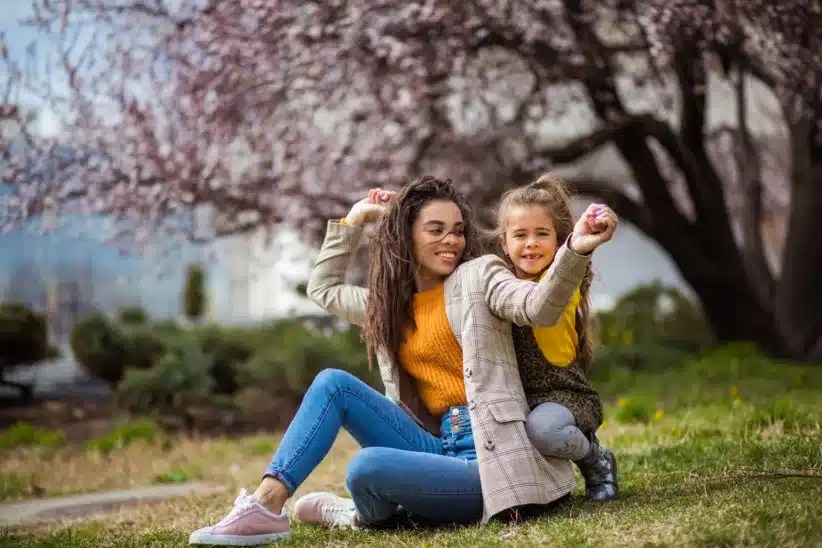 On a warm Tuesday afternoon, a Brooklyn elementary school gym is filled with fifth graders practicing cartwheels and kicks. The children energetically move about as they focus on their movements with deep concentration. But despite all the activity going on, Mestre Lampréia commands the room in a calm, quiet voice.
On a warm Tuesday afternoon, a Brooklyn elementary school gym is filled with fifth graders practicing cartwheels and kicks. The children energetically move about as they focus on their movements with deep concentration. But despite all the activity going on, Mestre Lampréia commands the room in a calm, quiet voice.
Capoeira (pronounced cap-where-uh)—an Afro-Brazilian martial art that combines dance and self-defense techniques with music and ritual—has found its way into children’s enrichment classes and gymnasiums. Created hundreds of years ago by slaves in Brazil who trained to fight under the guise of dancing, capoeira is taught as an extracurricular at venues throughout NYC. Though perhaps not as widespread as other martial arts like taekwondo or karate, its popularity has been steadily growing with children.
In Mestre Lampréia’s class, the lesson doesn’t start until the room falls silent. “How are you?” Lampréia asks the group. “Does anybody remember what we learned at our last class?”
In a traditional roda, a band—led by a stringed instrument called a berimbau and accompanied by a drum, tambourine, and cowbell—provides enhanced musical accompaniment. Under Lampréia’s guidance, everyone begins clapping as he plays the tambourine. He sings a verse and the kids sing a chorus in a simple call and response song, keeping a steady rhythm as two players enter the circle. To play the capoeira game, they engage in a series of movements that can be best described as a physical dialogue between two people, composed of kicks, escapes, sweeps, floor movements, and acrobatics.
The players move to the tempo of the music, while those who comprise the circle respond by clapping. As any onlooker can see, the game takes over the room with its lively spirit. Even those who don’t consider themselves musically talented can participate in this social activity.
“Teaching kids capoeira introduces them to a lifelong sport,” says Sandra Weathers Smith, mother of two boys, ages four and seven, who attend a class at St. Bart’s Church in the Upper East Side. “Their father and I encourage them to play capoeira, and we play with them because it gets them moving, singing, and playing instruments.”
This kind of enthusiasm is in part due to Mestre Lampréia’s dynamic teaching style. Originally from the city of Salvador, in the state of Bahía, Brasil, Lampréia found his passion for capoeira as a child. After performing capoeira in the 2002 Winter Olympics Opening Ceremonies in Salt Lake City, he eventually made his way to New York City where he founded Motumbaxé Capoeira, which is now taught in Manhattan, Brooklyn, Queens, the Bronx, and Long Island.
Takiema Bunche Smith’s seven-year-old son, Na’im, has been learning capoeira for more than a year from one of Lampréia’s students in Brooklyn. “Specifically for boys, I think the eye contact and nonverbal communication support social and emotional development—and it’s not something that boys in our society are often taught,” Smith says. “For girls, I see capoeira as a space where they are encouraged to be strong and powerful.”
Learning to trust the instructors and the process of capoeira was initially difficult for Smith, who worried that Na’im would hurt himself doing handstands and other moves. But, as parents can be assured, children tend to know their physical limits better than we think.
“The instructors also watch very carefully to make sure that all the kids are safe as they’re learning,” Smith adds. “They’re encouraged to move their bodies in powerful ways, but also to be focused and disciplined. I love that aspect of it—respect for the instructor, classmates, and themselves.”
Back at the gym, class is in full swing. Two boys in the roda are playfully kicking their legs, moving in a deliberate yet organic way. The instructor nods at the shy students, encouraging them to take their turns as well as commending those who ask for another chance to demonstrate sequences they’ve learned. The circle of children is alive with movement and music, their excitement is contagious, and, when the game is over, everyone claps and runs to give Mestre Lampréia a hug. Like so many other wonderful teachers across the city, he has taught the children how to answer the call of capoeira.
For a list of where children can learn capoeira in NYC, click here.





















